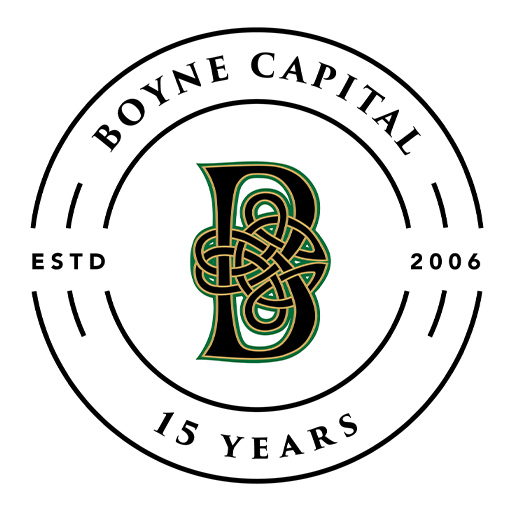Budgeting for a Recession… Have You “2023-Proofed” Your 2023 Budget?
It’s been 13 years since we’ve really “budgeted” for a recession, driven by the financial crisis of 2007. It’s been 40 years since we’ve had real inflation. If you’re under the age of 40, you likely weren’t yet in the workforce during the 2007-2009 recession, and therefore are unfamiliar with how to prepare a budget for a recessionary period. In such times, there are a lot of variables beyond the business’s direct control that should be considered when preparing an annual budget. Failure to anticipate these economic and business forces can have a dire impact on margins and profitability.
The Boyne Capital teams offers some budget buffering tips for 2023 (and not all of these may apply to your business).
-
1. Mind the (Interest Rate) Gap
Be mindful of interest rate assumptions, especially if you have Secured Overnight Financing Rate (SOFR)-indexed debt. SOFR is expected to increase from 3.8% to over 5.0% for most of 2023, raising the cost of short-term borrowing. Additional interest costs hit profits and liquidity.
-
2. Watch out for Special FX
Companies that import products lately have enjoyed historically high US Dollar foreign exchange rates, resulting in abnormally high current FX-driven product margins. To the extent that FX normalizes, you could expect a margin hit in 2023. Consider exchange rate hedging to protect against margin volatility and capitalize on the current favorable USD environment.
-
3. Take Stock of Industry Inventory Levels
Be mindful of the inventory bullwhip. If your customers stocked up on inventory, that overstates the annual demand for your products so you may want to adjust your baseline revenue/earnings expectation. Conversely, be aware of the potential unwinding/de-stocking effect, where orders from suppliers may lag end-customer sell-throughs for a while, creating a demand air-pocket until inventory levels reach an equilibrium.
-
4. A Tale of Two (Budget) Cities
It’s good to challenge your sales team, but don’t budget expenses based on stretch goals for your sales team. Supply chains are still not functioning reliably and consumer spending is jittery, making revenue projection difficult, at best. Don’t put yourself at risk by fixed overhead/G&A increases predicated on risky sales assumptions.
-
5. ‘Tis the Season to Be Wary
Be thoughtful about monthly seasonality. Of course, every year’s budget should reflect the natural sales cycles of your business sector and the seasonal ebbs and flows. However, the last two years have been distorted in certain Covid-impacted industries, and Q1/2 2023 may be weaker than usual.
-
6. Inflation – Great for Balloons and Blowing Up Budgets (and Mindful of Deflation)
Think about inflation and its impact on both materials and labor. Remember that price increases to your customers may lag your cost increases, so you should prepare for potential short-term revenue shortfalls. Additionally, even when customers agree to price increases, there is often lag time between when contracts are repriced and reset and when products are shipped. Furthermore, if you are using Last-In-First-Out (LIFO) accounting, expect an accounting lag based on when inventory is shipped – LIFO overstates profitability as prices are rising, and can understate profitability as prices decline, especially if inventory turns are slow. Savvy customers already are calling for reductions due to raw material decreases.
-
7. Fixed or Variable, Not All Costs Are Equal
Be mindful of fixed vs. variable costs and how you forecast their impact, and even variable costs such as direct labor can be semi-variable. In most businesses, gross margin will compress on the way down, with fixed costs eating away at gross margins as revenue drops. Variable contribution margin will almost always be different from gross margin.
-
8. Have a Plan B
In the event 2023 is a recession year and you don’t make your numbers, what’s your fallback position? And what’s the trigger for executing Plan B? Set it in advance to hold yourself accountable. If sales/EBITDA go down, what levers you can and will you pull? Where can you trim costs without sacrificing the company’s ability to compete? Reducing headcount is an obvious choice, but could savings be accomplished with flexible staffing? How about outsourcing? Do you have a plan in place to stretch Accounts Payable? Check procurement contracts to see what possibilities or penalties you may incur by downsizing or delaying deliverables. Can you put on hold major capital equipment acquisitions or facilities expansion?
-
9. Give Management Some Wiggle Room
Leave some management cushion for non-recurring items – you always have some! As an example, lawsuits often increase in a recessionary environment so a legal fund set-aside may be prudent.
-
10. Will It Fly?
Lastly, you’ll want to stress test your budget model. Engaging in “What If” scenarios can prepare you for the worst. Plug in the variable numbers to gauge the impact of rising interest rates, falling sales, payment delays, tax rate changes and other key budget influencers. Only then will you know what works.
Annual Budget a Month at a Time
As a final note, if you have never made a monthly budget, now is a great time to start. This will be a good learning experience and you will be able to test your key assumptions for budget-to-actual every month. Budgets will get better every year. No time like the present to start.
Unsure About the Best Budget Approach?… Give Boyne a Call
Having Boyne Capital as an equity partner gives you a distinct advantage in this highly competitive business environment, never more so than in these recessionary times. Working alongside management from strategy development through implementation, Boyne advises and assists its portfolio companies in increasing revenue and maximizing value. For nearly two decades, we have put our capital, management expertise and market knowledge to work across dozens of portfolio companies to position them for ever-greater success. When you are ready to act, or if you just want to explore options, give Boyne Capital a call.





